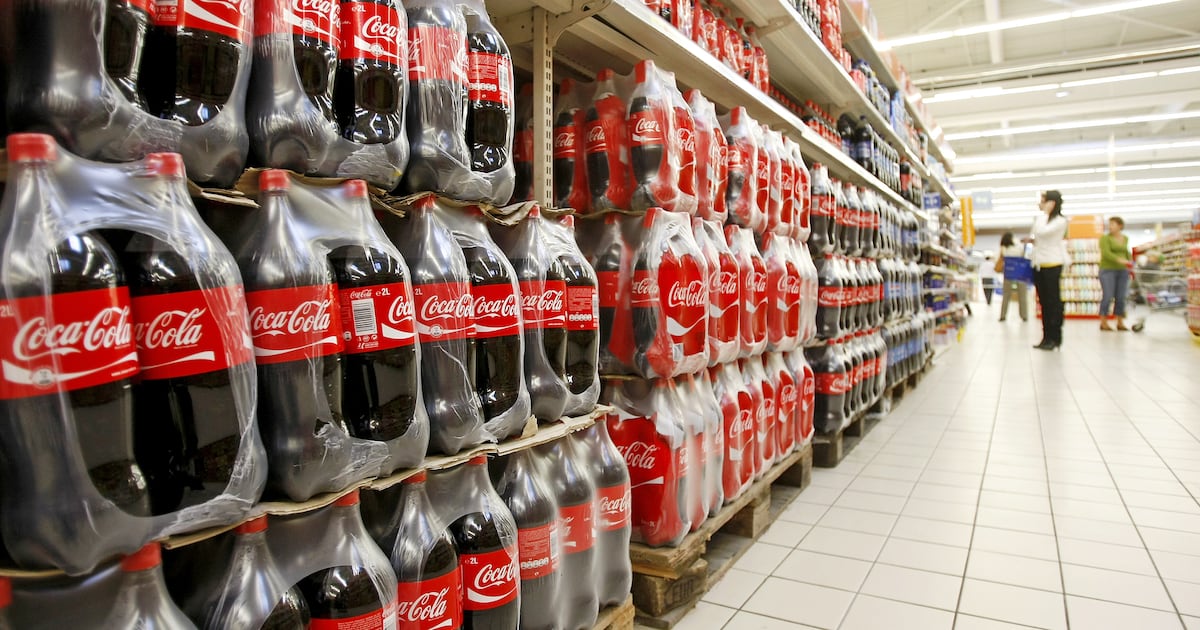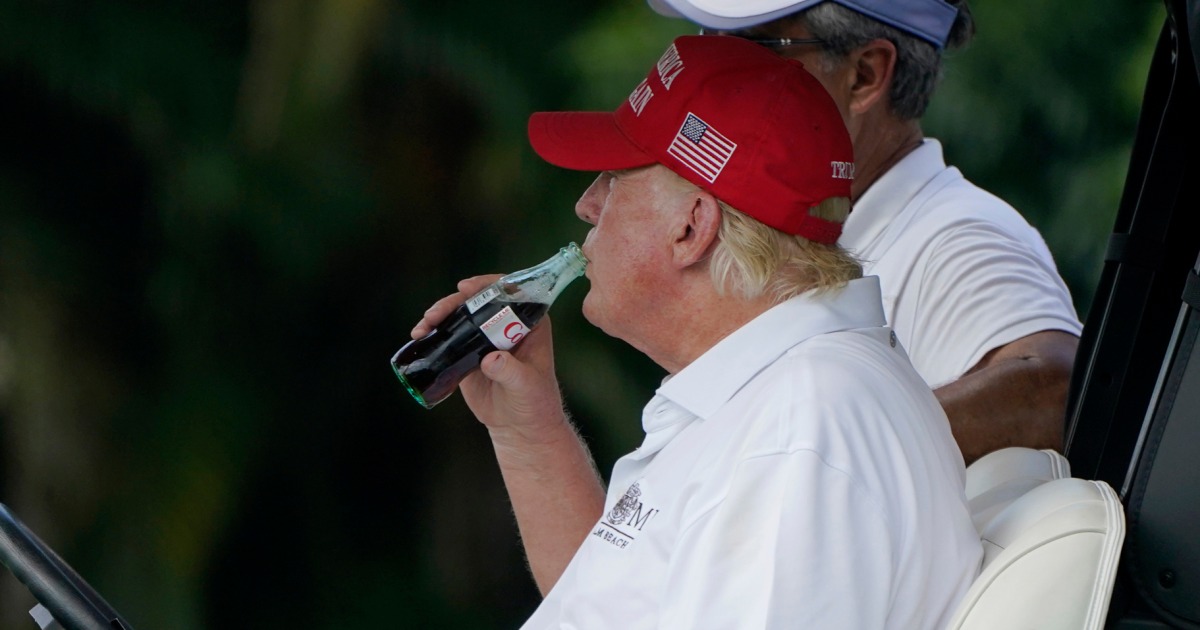Coca-Cola's Switch to Cane Sugar: Impact on Health and Economics

Introduction
In a recent statement, President Trump announced that Coca-Cola will be making a major change to its classic soda. The Atlanta beverage giant has agreed to use cane sugar in its sodas instead of the usual high fructose corn syrup, a move that has been met with both praise and criticism.
Impact on Health
The use of cane sugar in Coca-Cola's sodas has been a long-standing concern for health advocates, as high fructose corn syrup has been linked to a variety of health issues such as obesity and diabetes. This change could potentially have a positive impact on public health, but it remains to be seen how this shift will affect the taste of the popular soda brand.
Economic Implications
The switch to cane sugar could also have economic implications for Coca-Cola, as the cost of cane sugar is typically higher than high fructose corn syrup. This could potentially lead to a price increase for customers, and could also affect the company's bottom line. However, the move could also attract new customers who are looking for a healthier option.
About the People Mentioned
President Trump
Donald John Trump, born June 14, 1946, in Queens, New York, is an American businessman, media personality, and politician who has served as the 45th and 47th president of the United States. He graduated from the University of Pennsylvania's Wharton School with a degree in economics in 1968 and took over his family’s real estate business in 1971, renaming it the Trump Organization. Over decades, he expanded the company’s holdings into skyscrapers, hotels, casinos, and golf courses, building a high-profile brand often associated with luxury and real estate development. Trump also gained fame as the host of the reality TV show *The Apprentice* from 2004 to 2015[1][3][7]. Trump entered politics as a Republican and won the presidency in 2016, defeating Democrat Hillary Clinton in an unexpected victory. His tenure from 2017 to 2021 was marked by significant policy shifts, including tightening immigration controls, imposing a travel ban on several Muslim-majority countries, expanding the U.S.–Mexico border wall, rolling back environmental regulations, implementing major tax cuts, and appointing three Supreme Court justices. His foreign policy included withdrawing the U.S. from international agreements on climate change and Iran’s nuclear program, and initiating a trade war with China. Trump's handling of the COVID-19 pandemic was widely criticized for downplaying the virus's severity. After losing the 2020 election to Joe Biden, he challenged the results, culminating in the January 6, 2021, Capitol attack. Trump was impeached twice but acquitted both times by the Senate[1][2]. In a historic political comeback, Trump was re-elected and inaugurated for a second non-consecutive term on January 20, 2025, becoming the oldest president to assume office at age 78. He remains a highly influential and polarizing figure in American politics[2][7]. Trump is married to Melania Trump, with whom he has one son, Barron, and has four adult children from previous marriages. He has authored several books, including *The Art of the Deal*, a business bestseller[3][5][7].
About the Organizations Mentioned
Coca-Cola
## Overview Coca-Cola is one of the world’s most recognizable brands, synonymous with global beverage culture. The Coca-Cola Company, headquartered in Atlanta, Georgia, is a multinational corporation primarily engaged in the manufacture, distribution, and marketing of nonalcoholic beverage concentrates, syrups, and finished products, including its flagship Coca-Cola beverage[2][6]. The company operates in over 200 countries, offering a portfolio that extends beyond cola to include water, juices, sports drinks, teas, and energy drinks[6]. ## History Coca-Cola was invented in 1886 by Dr. John Stith Pemberton, an Atlanta pharmacist who sought to create a distinctive-tasting soft drink[1][2][4]. Originally marketed as a medicinal tonic, the beverage debuted at Jacobs’ Pharmacy in Atlanta, served as a syrup mixed with carbonated water[4][7]. Frank M. Robinson, Pemberton’s bookkeeper, coined the name “Coca-Cola” and designed its iconic script logo[1][2]. After Pemberton’s death in 1888, businessman Asa G. Candler acquired the company, aggressively expanding its distribution and pioneering innovative marketing tactics such as couponing and branded merchandise[1][5]. By 1895, Coca-Cola was sold across the United States, and in 1899, the first bottling agreements were established, enabling rapid global expansion[1][5]. ## Key Achievements Coca-Cola’s growth was fueled by strategic bottling partnerships, innovative advertising, and product diversification. The company’s advertising campaigns, celebrity endorsements, and global reach became hallmarks of its success[5]. Notable milestones include the introduction of Diet Coke in 1982, the brief but infamous launch of New Coke in 1985, and the acquisition of numerous beverage brands worldwide[6]. Coca-Cola was among the first to use recycled plastic in bottles and has consistently led industry sustainability initiatives[













